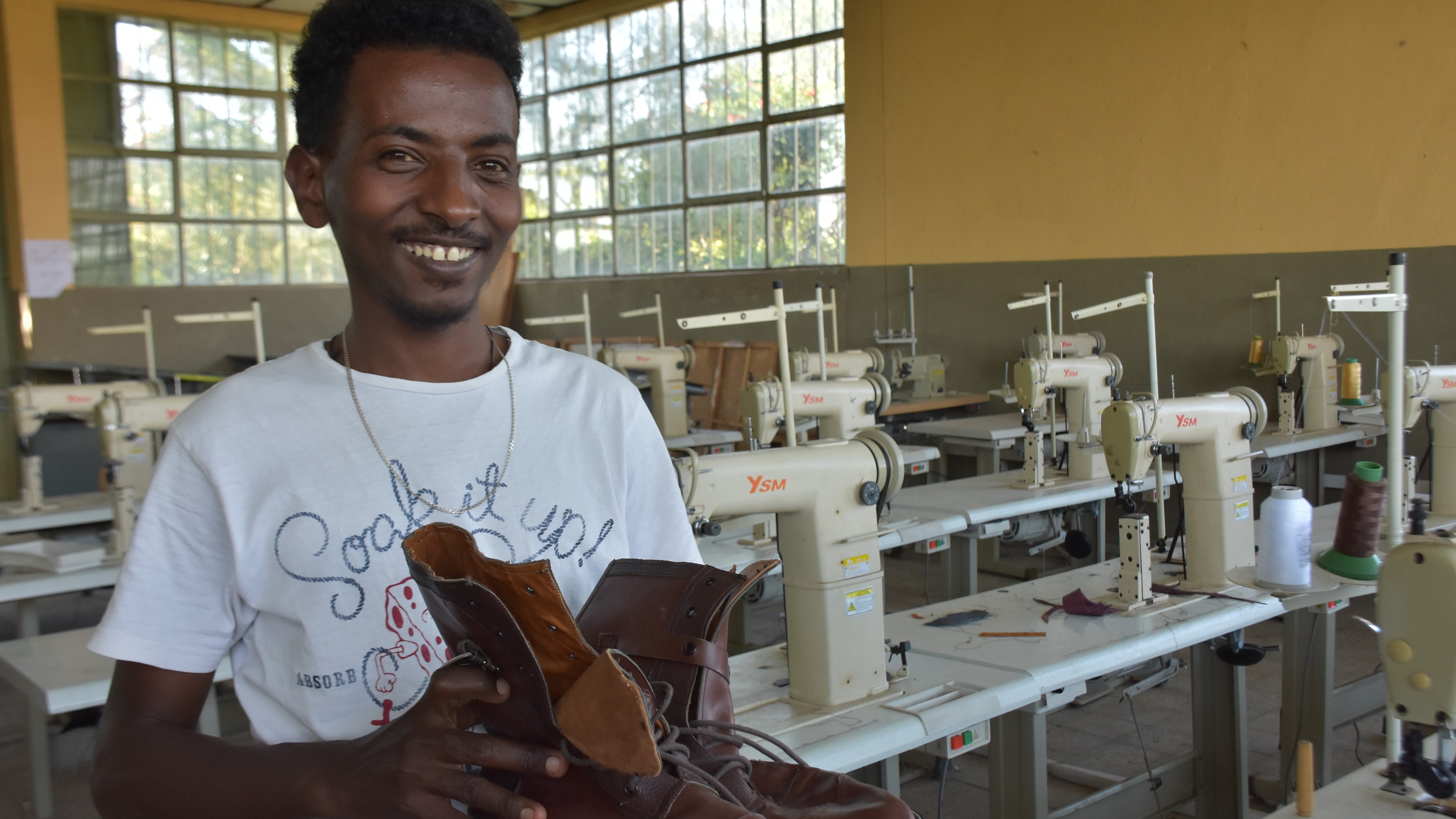Mastering craftsmanship and entrepreneurship in Ethiopia's leather hub
09 January 2024 UNIDO

The story of Abay Girma Kefene is set in the bustling central Ethiopian town of Modjo – the heart of the country’s leather production. As a child, Kefene dreamt of being a skilled craftsman. However, his childhood dream was overshadowed due to family responsibilities and the financial pressures of the hustle of urban life. Hindered by the absence of university entrance results and the early commitments of starting a family, Kefene persevered through numerous commission and construction roles to support his wife and six-year-old son.
Then, he discovered UNIDO’s project and did not hesitate to embrace the opportunity to be trained to become a skilled craftsman, one step closer to his childhood dream.
Kefene’s story in Ethiopia mirrors numerous others, reflecting the prevailing challenges of widespread unemployment, insufficient education, and skill deficiencies across the country. However, amid these challenges, hope arrived through the Leather Initiative for Sustainable Employment Creation (LISEC).
It presented Kefene with an opportunity he wholeheartedly embraced—a transformative training programme that brought him closer to fulfilling his childhood dream of becoming a skilled craftsman. Moreover, LISEC equipped Kefene and his peers with entrepreneurship skills, honed their craftsmanship in leather product-making, and instilled the crucial tenets of team-building and awareness.
LISEC, funded by the European Union and China, and implemented by UNIDO in collaboration with the Ethiopian government, aimed to strengthen Ethiopia’s leather industry and generate job opportunities for the city’s youth, addressing the core reasons for migration.
It went beyond mere training, empowering individuals like Kefene with entrepreneurship skills and enhancing their leather crafting abilities. Through various training sessions, UNIDO not only honed skills but also facilitated access to shared manufacturing space, equipping entrepreneurs with the necessary machinery to kick-start their businesses in footwear and leather goods within Modjo.
"My city, Modjo, is known for tanneries and leather production. With ample leather availability, I want to make products for our local market. UNIDO LISEC trained me in footwear craftsmanship, providing me with the knowledge required for the whole process," Kefene says.
Fueled by the project, Abay strives to tap into Modjo’s abundant leather resources to produce high quality local leather goods, showcasing how initiatives like LISEC can transform distant dreams into concrete achievements.
Project name: Leather Initiative for Sustainable Employment Creation (LISEC)